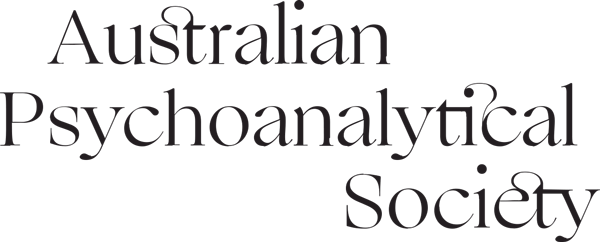Psychoanalytic Theory Lectures
This is a programme of public lectures given by members of the Australian Psychoanalytical Society for students in training. It was a three year programme from 1997-1999. Years 1 and 2 address theories and techniques from Freud, Klein, Bion, Winnicott and Fairbairn. Year 3 focus on topics such as infancy, pathological conditions and states of mind and psychoanalysis and culture.
